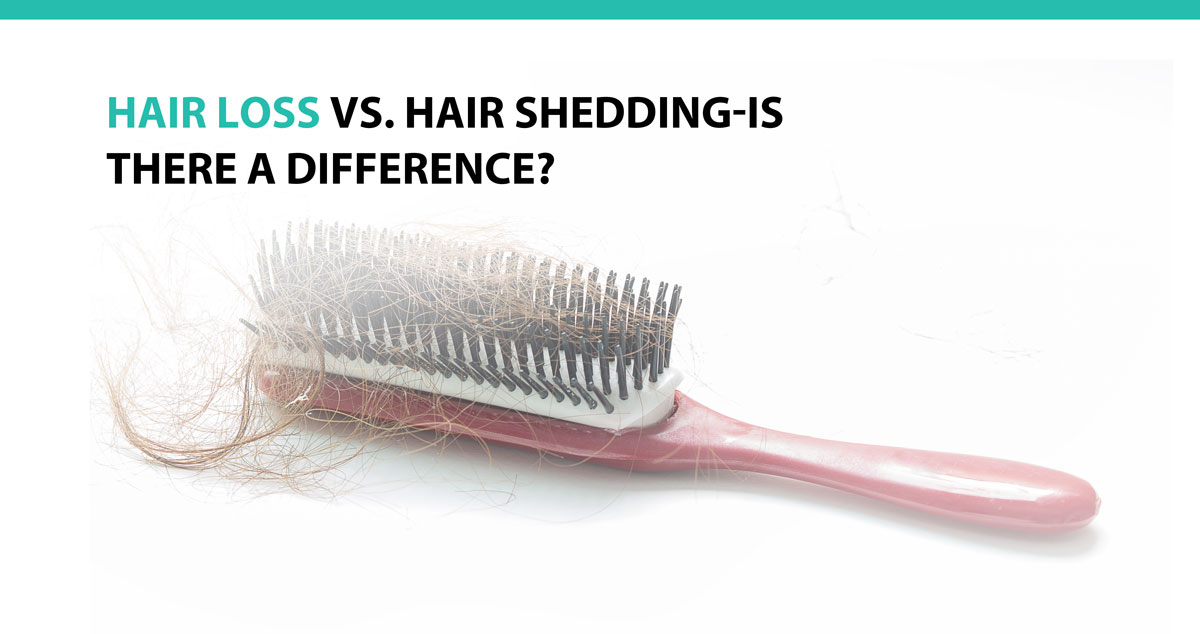
Most American men will suffer from hair loss, including thinning or baldness. It is normal to lose about 100 hair strands every day, but losing too much hair than what’s normal is a sign of hair loss. Hair loss needs medical attention, unlike hair shedding.
So, yes. Hair loss differs from hair shedding. Hair shedding is normal and stops on its own, while hair loss signifies a serious problem that requires you to seek medical help.
Hair Shedding
Hair shedding is a normal body function that happens daily and is part of the hair cycle. It usually starts at the scalp and progresses downward. This is called telogen effluvium. It occurs during periods of stress such as puberty, recovering from an illness, losing over 20 pounds of weight, or undergoing an operation.
In addition, some people experience shedding because of hormonal changes, while others shed their hair because of medical conditions. Men experience hair shedding at some point during their lives. Some shed hair regularly, while others only occasionally, and the reasons behind hair shedding vary from person to person.
Types of Hair Shedding
Hair shedding is temporary or permanent. Temporary shedding occurs when the follicle is damaged or broken. This shedding usually happens due to stress or after a haircut or shaving. Stress increases androgen levels in your body, which can turn your hair grey and cause the strands to fall out. This hormonal imbalance shortens your hair cycle, increasing shedding.
Permanent shedding occurs when the follicles become inactive. This type of shedding is often associated with menopause. Aging causes hormonal changes that may cause excessive shedding. In addition, as you age, your hair thins and becomes more prone to shedding.
Although your hair grows back after your body readjusts from the cause of stress, you can prevent hair shedding by using a conditioner that contains protein. Protein helps strengthen the hair shaft, preventing breakage. If you notice excessive shedding, consult your doctor.
Hair Loss
Hair loss refers to the amount of hair lost from the scalp and is mainly caused by external factors. It occurs when your hair growth is prevented by something, a condition called anagen effluvium. This term refers to the abrupt loss of hair in its growing phase caused by something that destroys the hair follicle’s metabolic activity.
Causes of Hair Loss
Heredity
Some people suffer from hereditary hair loss. Sometimes, when you can’t point to specific external issues causing hair loss, your genetic composition may be the issue.
Poor Diet
A nutritional imbalance like deficiency of iron, proteins, vitamin B3, fats, and vitamin D causes extreme hair loss. So incorporate vegetables and fruits into your diet every day. You can also boost hair growth by adding seeds and nuts to your diet. Also, avoid processed foods.
Medical Conditions
Some medical conditions like alopecia areata and androgenetic alopecia cause hair loss. Other disorders like diabetes, chemotherapy and thyroid problems also trigger hair loss.
Types of Hair Loss
Hair loss can be either temporary or permanent. Temporary hair loss occurs after a person has gone through illness or stress. This type of hair loss usually goes away after a few months.
Permanent hair loss happens over time due to aging and genetics. However, the most common cause of permanent hair loss is male pattern baldness.
Here’s How to Maintain Healthy Hair
Take supplements: Visit your dermatologist before taking any supplements. First, you need to identify the deficient nutrients and then take the right supplements.
Hydrate and nourish your scalp: Get products that can nourish your hair from root to tip. For example, products with coconut oil, moringa oil, or turmeric give your scalp a healthy dose of minerals, antioxidants, and vitamins to enhance hair growth.
Get More Information about your Hair Loss
If you are wondering about the cause of your hair loss, or want to find out more information about hair restoration solutions schedule a consultation with Doctor Joseph Williams here at the Advanced Medical Hair Institute in Reno, NV or Las Vegas, NV.










